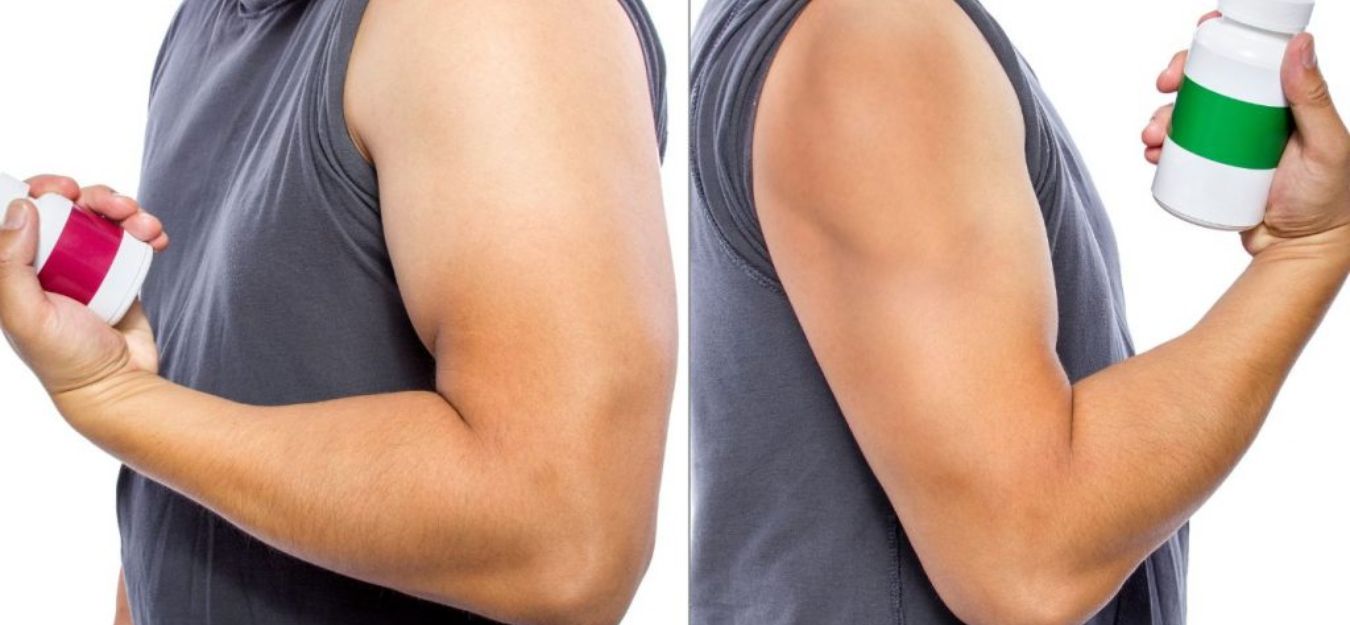Power Up Your Performance
Hormones such as testosterone play a vital role in the body for everything from sex drive to body composition to mental health. Testosterone is a steroid sex hormone that peaks during adolescence to promote puberty and begins to drop off after around the age of 30. While it is produced in both men and women, today we’re going to look at symptoms of low testosterone in men and some of the best supplements to increase testosterone and testosterone therapy.
What is Testosterone?
Testosterone is a steroid-based sex hormone made in the testicles. Though it is commonly associated with men, women also need and produce this hormone in their ovaries. For this article, we’ll be looking more specifically at how testosterone is used in the male body and some symptoms of low testosterone.
Testosterone is considered an androgen, which means it is responsible for the development of male-associated characteristics in the body. It plays an important role in sperm production, sex drive, how the body stores fat, muscle and bone mass and the production of red blood cells. In addition to its effect on the physical body, imbalanced testosterone levels can also affect mood and mental health.
As we age, hormone levels begin to decline, leading to low testosterone levels. You may also hear this referred to as low T levels. It’s estimated that testosterone levels fall by about 1% per year after age 30 or 40, depending on the individual. Since hormones work throughout the body, the symptoms of low testosterone can be wide-ranging and include:
- Weight gain.
- Decreased sex drive.
- Decreased muscle mass & increased body fat.
- Lower energy levels.
- Hair loss on the body.
- Decreased bone density.
- Erectile dysfunction.
- Depressed mood.
- Low self-esteem.
As you can see, low testosterone can have impacts on physical and mental health. If you suspect you might have low T levels, schedule an appointment with your doctor to confirm. Below we’ll share the best testosterone booster that you can incorporate into your routine for natural support.
What is Testosterone Therapy?
When it comes to testosterone therapy, the verdict is still out on whether it is beneficial for otherwise healthy men with low levels of testosterone. While it can be helpful for those with a specific disease, such as hypogonadism, that causes low testosterone, there isn’t evidence to support its use to prevent the typical signs of aging associated with decreasing testosterone levels.
This form of testosterone therapy can include taking supplemental testosterone in the form of injections, patches, pellets or gels in an attempt to increase levels in the body. However, there are some risks associated with testosterone therapy including:
- Increased red blood cell production can increase the risk of blood clots.
- Association with an increased risk of heart disease–more studies are needed to confirm.
- It may cause testicle shrinkage.
- It can decrease sperm production.
- Acne or other skin issues.
- It can worsen sleep apnea.
- It may cause enlargement of breast tissue.
If you think your low testosterone levels may be caused by hypogonadism, talk to your doctor about whether testosterone therapy is the right choice for you.
What is a Testosterone Booster?
Testosterone boosters are supplements that have been made with ingredients including vitamins, minerals and herbs that have been shown to naturally boost or balance testosterone levels. They can function by directly supporting the production of testosterone or by preventing its conversion into estrogen.
The Best Supplements for Increasing Testosterone
While taking exogenous testosterone may cause some adverse effects in the body, supporting natural testosterone production with supplements and vitamins can be a safer alternative.
Ashwagandha
This herb has been used as an adaptogen in Ayurvedic medicine to help the body better cope with stress and anxiety and boost resiliency. In terms of its ability to boost testosterone, this study found that after supplementing with 5 grams of ashwagandha a day for 12 weeks, participants experienced a 10-22% increase in testosterone levels. Another small study had participants take a 600mg ashwagandha extract for 8 weeks after which they experienced an average increase in testosterone of 15%.
It may be that ashwagandha is a natural testosterone booster in stressed-out men, possibly by reducing the production of cortisol. You can take this herb either as a powder or in capsule form.
Vitamin D
Vitamin D is somewhat of a misnomer as this nutrient functions more like a steroid hormone in the body. In fact, research has found a correlation between low levels of vitamin D and low testosterone levels. Look for supplements that contain D3, which tends to increase blood levels of vitamin D faster than the other common supplement from D2. You may need to work with a healthcare practitioner to find the right dosage, but general guidelines recommend 400 to 2000 IU a day to prevent deficiency.
Zinc
Incorporating a zinc supplement into your routine can be a natural way to boost testosterone. This mineral is a simple and easy addition to your testosterone booster regimen. This review found that men who had low T levels found an improvement in fertility and testosterone after supplementing with zinc sulfate between one and four months. The benefits were especially prevalent in those who had low blood levels of zinc to start.
As always, make sure you consult with your doctor or other qualified healthcare practitioner before taking any supplements to avoid any possible negative interactions with medications or health conditions.

